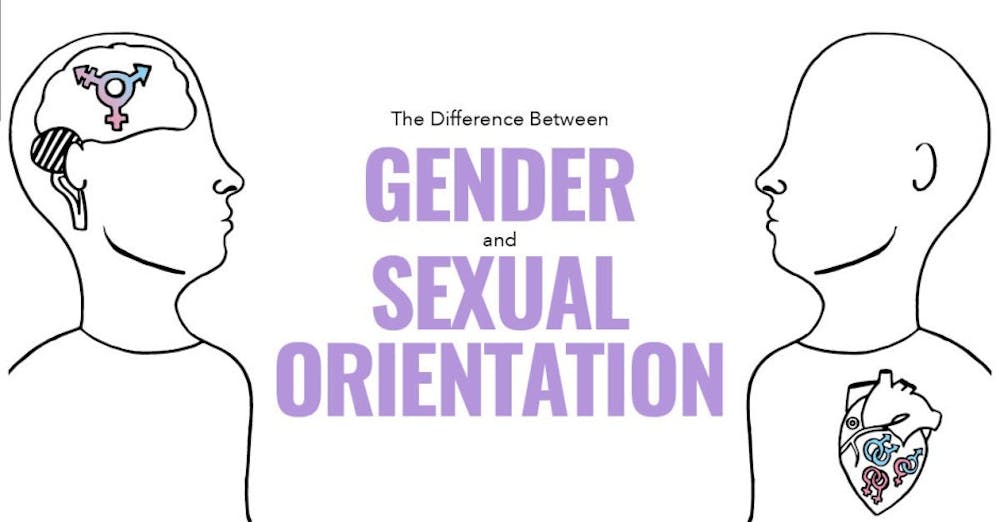To members of the LGBTQ+ community, gender identity and sexual orientation are not simply definitions – they are part of their identities. According to a Pew Research study, 48 percent of gay men and 50 percent of lesbians say their sexual orientation is extremely or very important to their overall identity.
Uncommon gender types are important as well. Bisexual and transgender, asexual, pansexual, and demisexual are considered uncommon for some, but they still exist. The growing number of ways people identify make understanding the relationship of gender identity and sexual orientation important.
Ball Bearings sat down with Ashleigh Bingham, a doctorate student in women and gender studies; Scott Zello, who identifies as gay; Collin Moore, who identifies as transgender and lesbian; and Bonu Dustova, a member of Spectrum (Ball State University’s organization for LGBTQ+ support), to discuss the difference between gender and sexual orientation and the importance of understanding these concepts.

Ball Bearings: How do you define gender?
Bingham: From a feminist perspective, gender is a
social construct that is made up of the expectations and characteristics
of an individual often based off of sex, although the two are separate
because feminist perspective and feminist theory will look at it as a
construct [of how someone should act].
Zello: Sometimes gender is synonymous with gender
roles. I’ve also seen people use gender to mean the sex that the person
feels its body should be.
Moore: The two big things are: one it’s a construct,
and two it’s a personal choice. It’s really important to remember that
it’s not always tied into the gender roles or the clothing you associate
with.
Zello: In addition, I think how people use gender
results in a lot of misunderstanding between people because often when
people use the word, they don’t define what the word is and the context
they’re using it in.
Dustova: It depends on the perspective you look at it
from – biologically or what gender they think they are. Really, it’s
just based off of what aspect you are asking about, or what perspective
you’re coming from.
BB: In contrast, how do you define sexual orientation?
Zello: Sexual orientation is who you’re attracted to.
Moore: Not tied to gender all the time.
Dustova: It can be something you don’t always think
about. Because I’m a girl, just based off sexual orientation, [don’t
assume] that I am attracted to men. Not always, because I’ve had a
girlfriend. Sexual orientation is a person you seem attracted to,
sexually or non-sexually.
Bingham: Sexual orientation is often a physical or
romantic attraction, unless you have someone asexual, which means not
attracted to someone sexually. It is romantic and sexual attraction to a
certain group, often what we would call identity.
Dustova: They don’t necessarily depend on each other, but they work together.
To continue reading, visit BallBearingsMag.com





